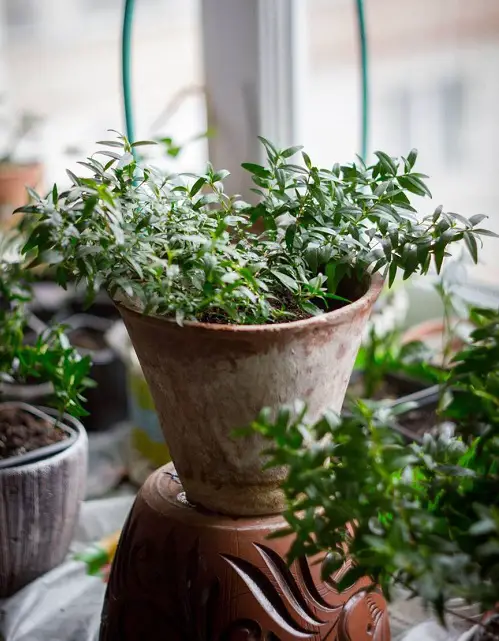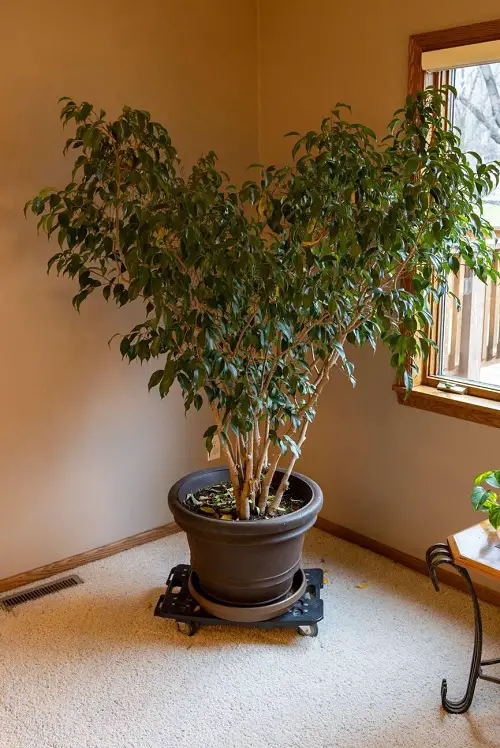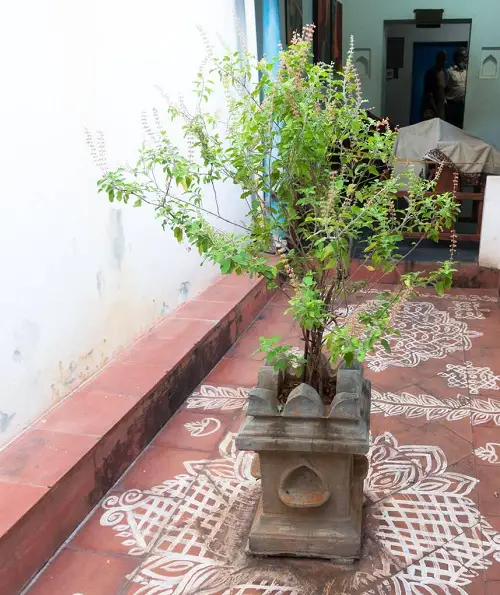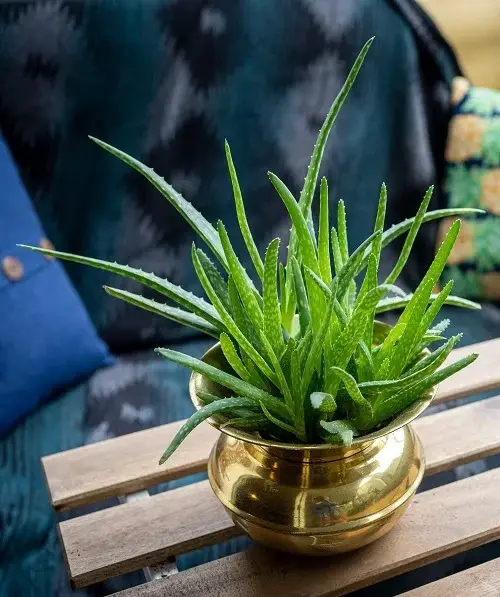There are different Religious Houseplants across different sects in the world that symbolize different meanings. Let’s have a look.
If you want to add tranquility, peace, and spiritual significance to your home, these religious houseplants are a great choice!
Religious Houseplants
1. Banyan Tree (Bonsai)
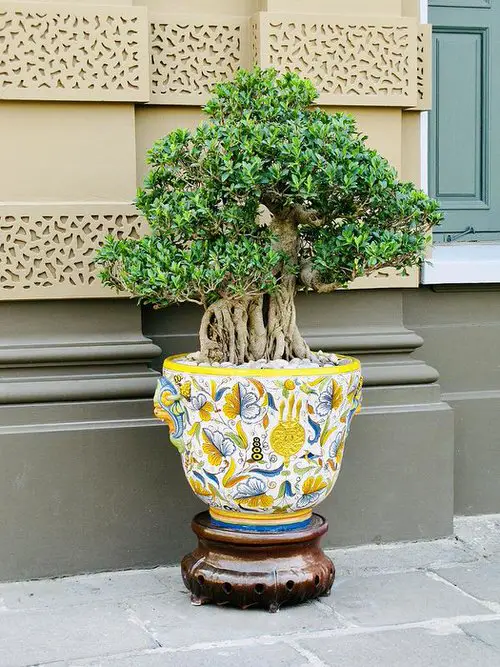
Botanical Name: Ficus benghalensis
Banyan trees provide right shade with their canopies for spiritual conversations and discourse in Indian and Buddhist cultures. Their leaves and spreading branches offer a serene and peaceful atmosphere, for an ideal spot for contemplation and meditation.
Well, having a full grown tree indoors is not possible, but you can surely have its bonsai form!
2. Myrtle
Botanical Name: Myrtus
Quite a common spotting in Christian weddings, this plant represents love, faithfulness, and the promise of a pure and lasting marriage, the reason it is a part of bridal bouquets.
You can easily grow this religious houseplant indoors by a window, where it gets plenty of bright and indirect light all day long.
3. Weeping Fig
Botanical Name: Ficus benjamina
The Weeping Fig holds significant symbolic value, particularly within Islamic traditions. Having it indoors can surely be a focal point in the room, as it can attain an impressive height of 4-6 feet easily.
4. Prayer Plant
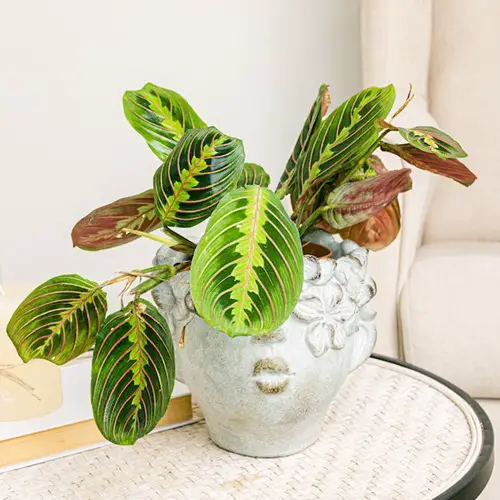
Botanical Name: Maranta leuconeura
The Prayer Plant, is popular for its unique behavior of folding its leaves during night time—a powerful reminder to express gratitude. Across diverse cultures, the plant is a universal emblem of thankfulness and humility.
5. Holy Basil
Botanical Name: Ocimum sanctum
Hinduism reveres Tulsi as a sacred plant, and its leaves are often used in various rituals and ceremonies, such as daily puja and altars. Watering and caring for holy basil is a form of spiritual commitment and dedication across different Hindu cultures, too.
You can grow this religious houseplant in a pot indoors, at a spot where it gets a minimum of 6-7 hours of direct sunlight.
6. Olive Tree
Botanical Name: Olea europaea
Olive tree holds an important position in Christianity, Judaism, and Islam. Growing it indoors brings peace, wisdom, prosperity in the family—it is also connected with the context of reconciliation and as a bearer of blessings.
For indoors, go for Arbequina, Picual, and Koroneiki Olive Trees. They are compact and reach 3-4 feet in height.
7. Aloe Vera
Botanical Name: Aloe barbadensis miller
The pointy leaves of this succulent are said to ward off evil spirits, while its gel offers physical and spiritual healing. The plant is highly revered in Islamic teachings, and is recommended for spiritual purification.
8. Christmas Cactus
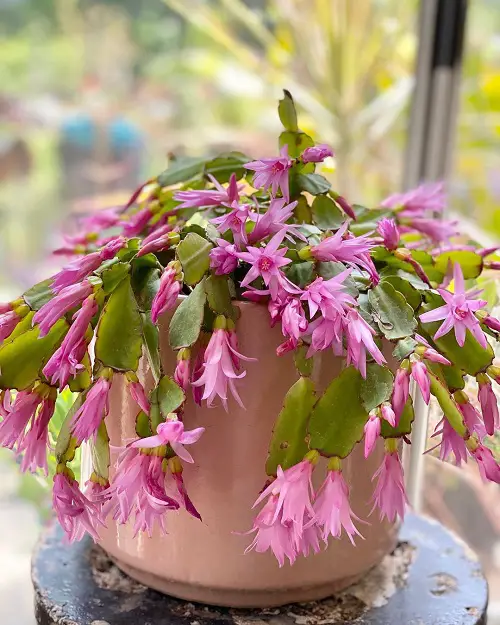
Botanical Name: Schlumbergera bridgesii
Well, Christmas cactus doesn’t have a religious houseplant vibe or a significance per se, but it surely holds an importance. Why? As it blooms during the festival time, filling the home with the Christmasy vibe with its stunning flowers! Who can ignore this beauty?


